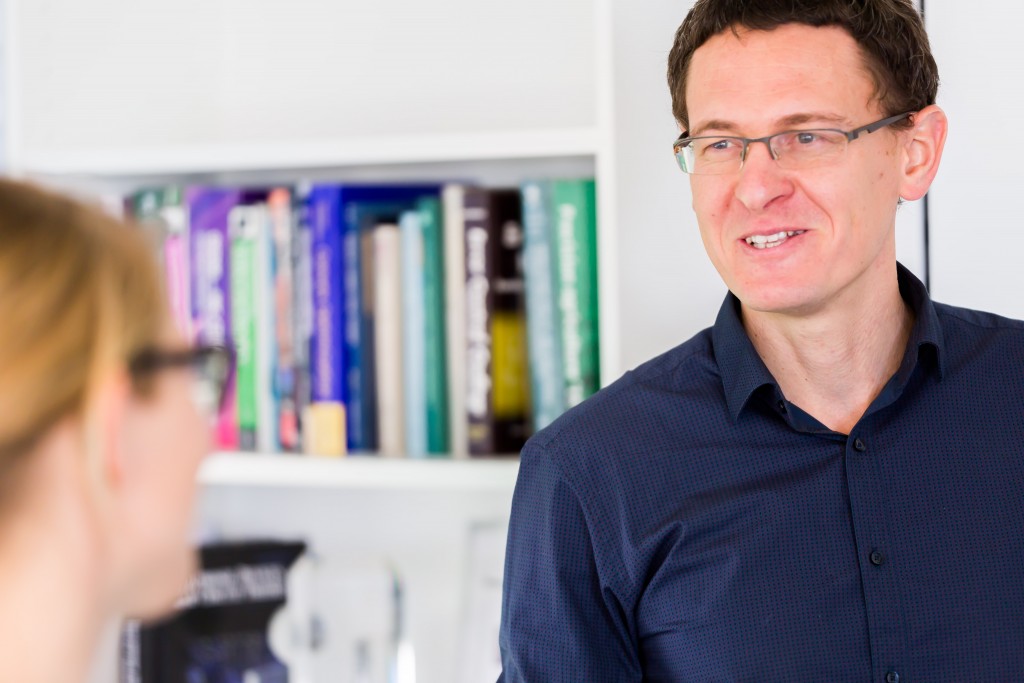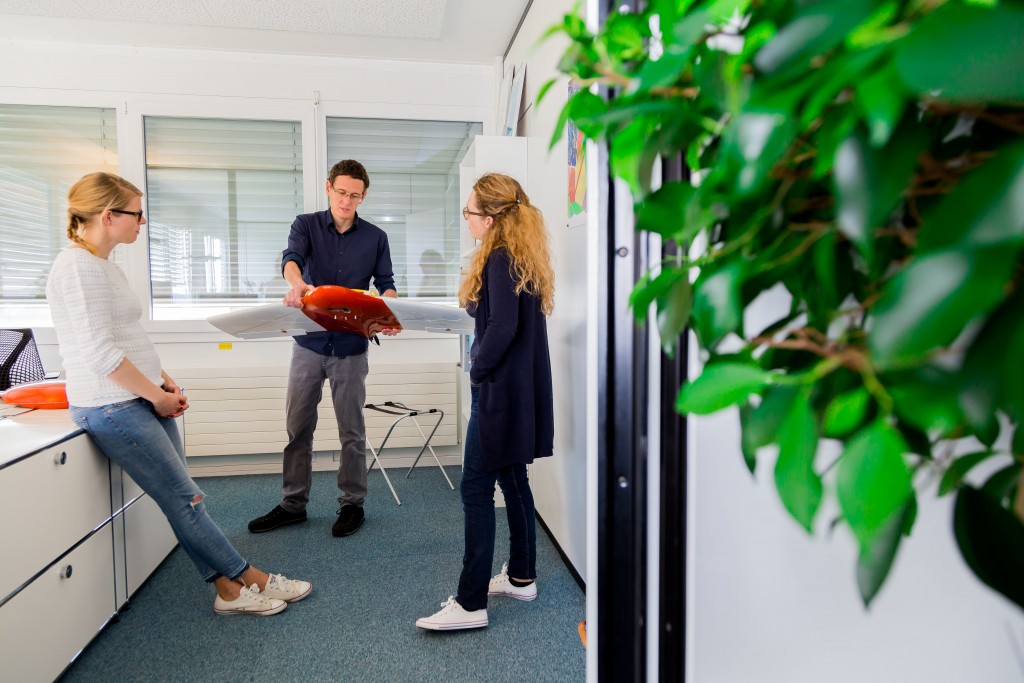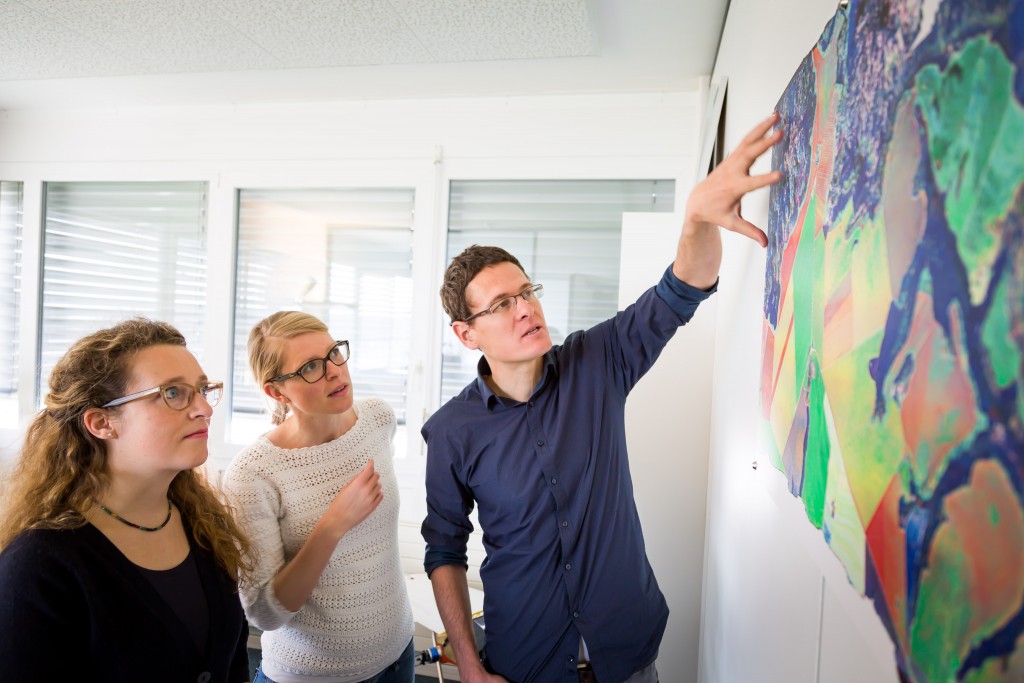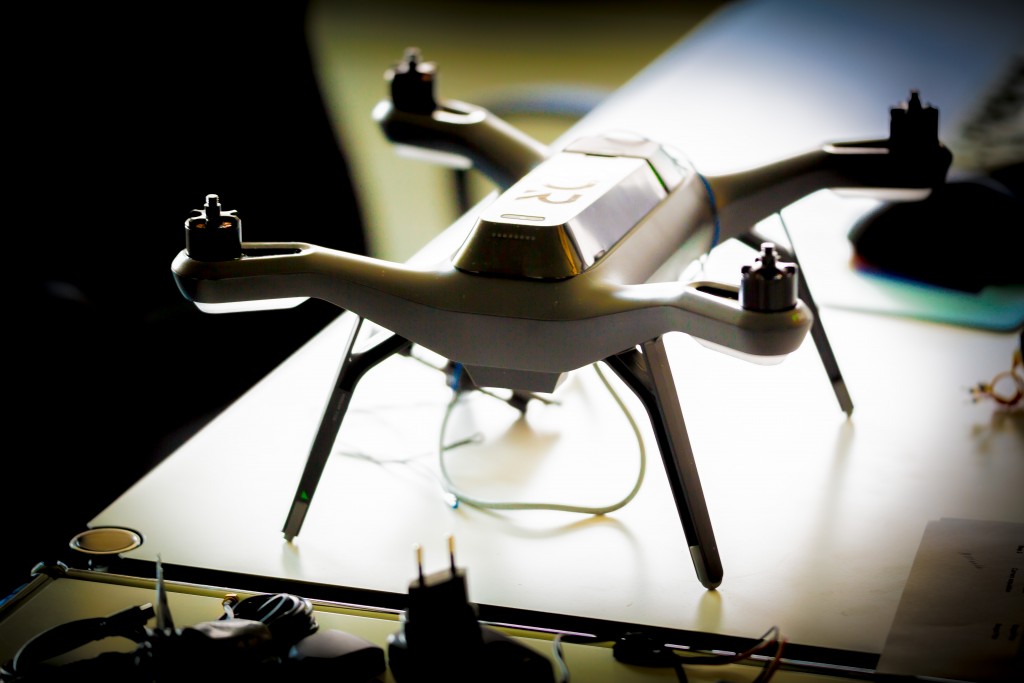Branch
Select your branch
Drones to Boost Agricultural Productivity

IF Lausanne: What were the main factors that made you decide to go for a career as scientist-entrepreneur rather than for an academic career?
Yosef: Interestingly, exactly the same factors represent both top pros and cons for me:
- The science-heavy entrepreneurship is particularly hard because of the enormous gap between the basic scientific insight, the proof of concept, and the eventual viable commercial product. The journey is hugely exciting, but also full of risks and anxieties, whether we would be able to overcome the numerous technological challenges.
- The need to learn the entire new domains of management, business development and administration, acquire new skills on the fly that I never thought I would need. It feels great when it works, but also many a times I feel inadequate because my knowledge in some of these domains may not be sufficient.
- The crazy pace of places and events, the endless workload and the need to find common language with an extensive array of different people from posh investors to hardboiled farmers. It is intoxicating and satisfactory, but also exhausting and emotionally draining. It can go from top to bottom and back several times a day.
Yosef: Unfortunately, I can not count myself among the youngest of the entrepreneurs around. On the positive side, my experience and credentials help me navigate the ecosystem and communicate with some of its senior players. I think I am really lucky to have the best of both worlds, common language with the younger crowd and the understanding of the more mature worldview.
Yosef: I can certainly relate to some of these characteristics, but not all. I was fortunate to have experienced life in several countries with dramatically different mentalities and social orders. I have great appreciation of ambition, but even greater respect for humility and resilience to failure that comes with it. I have respect for authority, but never take its opinions as the final word. This is particularly true with some of the prevailing scientific theories, which are often confused with objective truth just because they are accepted by the academic establishment.
My opinion is that the authority is there for a reason, that its existence plays an important stabilising role, which should not be underestimated. On the other hand, its importance is only determined by the extent of its usefulness to the society. The status quo has to be constantly questioned, challenged and ultimately disrupted ones it becomes outdated. Clearly, with the current pace of change the role of establishment and common wisdom becomes ever more fragile, but also important in my mind. It’s a delicate balance.
Yosef: I think we need to better emphasise the role of science and differentiate it from dogma. In my view, science is a pursuit of useful insights and not any kind of eternal truths. Any theory, no matter how abstract and well established has to be considered for being useful for practical applications. And a good theory will always find its purpose. This does not contradict any “blue sky” research, quite the contrary, but we should avoid putting “pure” science over the applied science, as is sometimes still the case in academic environment.
The second point would be to make the entry barrier for aspiring scientist-entrepreneurs as low as possible. There are financial, administrative and cultural barriers and in some ways Switzerland is in the forefront, but certainly not on all fronts. I can testify that I wouldn’t get far without the support of the excellent startup ecosystem that exists around EPFL, so this is something that is certainly happening. There is still a large gap between the situation in Western Europe and the leading hotbeds for innovation like the Silicon Valley and Israel.
Yosef: I really can’t define myself as a professional headhunter. Until recently it has been a very spontaneous process, where I shared my enthusiasm and vision with people I met. Some of them would be intrigued enough to get involved and help. Some of those individuals have proved to be very helpful and subsequently joined the company. Of course, as we grow, this process is becoming more organized and systematic, where the prospective candidates undergo multiple interviews with the members of our team. The core criteria that we are looking for outside the professional skills are independent thinking and the ability to take initiative, but also being an effective team player.
Yosef: We started from the imaging spectroscopy and its applications in environmental research and agriculture. Our initial approach was to use a manned aircraft to acquire our data. A drone is just a convenient way to place an object in 3D space, or make an object move from point A to point B. And in our case this object is a hyperspectral camera. The drone technology has a great “cool factor” and it allows us to dramatically simplify and reduce the costs of our operations, but it is not really the core component of our business.
Yosef: We would like to become a key player and a knowledge hub in the emerging smart agriculture industry. Today we have unique technology and we are well positioned to build the analytical platform that would empower farmers with unprecedented level of understanding and awareness of their land and crops. Of course this is a very rapidly developing market with some very strong organisations starting to take interest in what we are doing. So, the challenge of building the necessary momentum, while staying true to our vision will be enormous.
Yosef: Today, industrial agriculture constitutes one of the main sources of pollution and climate change. Our relationship with our environment is largely parasitic, where enormous expanses of land are effectively removed and isolated from our planet’s biosphere using large quantities of synthetic chemicals. The resultant monoculture deserts are then exploited for the production of food before being exhausted and discarded. This industry is fully reliant on fossil fuels as the source of energy, is extremely inefficient and unsustainable.
One of the main reasons for the existing industrial farming practices is our very limited ability to gather data, monitor and study complex ecosystems on a large scale. We try to simplify, sterilize and minimize the interaction of our crops with other plants, bugs and microbiota because we don’t want and don’t know how to deal with complexity.
Our technology is among the most effective known methods to obtain the necessary knowledge and thus facilitate significant progress towards smarter, sustainable farming that can one day become the solution in our relationship with our environment instead of being one of its major problems.




